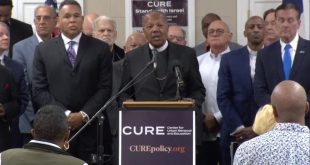Ending Generational Poverty series, Part II: Human Dignity and the Challenge of Poverty
Editor’s Note: This article is adapted from Ending Generational Poverty: Learning to Love Your Neighbor by Nelson Warner and Keith Rodriguez, who run Bridge Ministry of Acadiana in Lafayette, LA. The book is now being used as a practical resource for Christian community development in Lafayette and beyond. It can be purchased here.
According to Scripture, every man, woman, and child is created in the image of God, or the imago Dei (Gen. 1:26). Because we are made in the image of God, we are each born with an innate dignity. This truth is the foundation of our ministry and the premise of the argument laid out in this series.
Then why, we might ask, does there often seem to be a gap between man’s innate dignity and his behavior? After creation came man’s Fall from God’s glory. Mankind now lives in an identity crisis. The imago Dei is tarnished, marred, and sometimes unrecognizable due to sin. But we still have not lost our dignity.
Mankind’s condition is excellently characterized by Laura Hillenbrand in her biography of Louis Zamperini, entitled Unbroken. Zamperini was an Olympic runner who participated in the Berlin Olympics. In World War II, his plane crashed in the Pacific. He was ultimately rescued, but ended up in Japanese prisoner-of war-camps where he was severely mistreated. Hillenbrand writes:
The crash of the Green Hornet had left Louie and Phil in the most desperate physical extremity, without food, water, or shelter. But on Kwajalein, the guards sought to deprive them of something that had sustained them even as all else had been lost: dignity. This self-respect and sense of self-worth, the innermost armament of the soul, lies at the heart of humanness; to be deprived of it is to be dehumanized, to be cleaved from, and cast below mankind. Men subjected to dehumanizing treatment experience profound wretchedness and loneliness and find that hope is almost impossible to retain. Without dignity, identity is erased…Dignity is as essential to human life as water, food, and oxygen.
Thus we learn that our God-given dignity is essential to our humanity, and a mutual recognition of dignity is the most important component of our identity and all human relationships.
The good news is that Jesus, our Savior and Redeemer, is the restorer of our dignity through His Word and Spirit. In Christ’s death and resurrection, we are set free from condemnation (Rom. 8:1), made a new creation reconciled to God (2 Cor. 5:17, 18), and destined to become the wisdom of God who is our righteousness, holiness, and redemption (1 Cor. 1:30). The Holy Spirit now dwells in us and leads us to look (i.e., act, think, and talk) like Jesus (Rom. 8:29). As God works in us, we take on His very character, and our dignity begins to be restored to its former visible splendor.
But the full restoration of dignity does not come easily to many people. It is a daily struggle to carry our cross. Here we should think especially of the poor, who often face unique obstacles to embracing their God-given dignity.
Poverty by its very nature requires all thought to be directed toward the problem of surviving today, leaving no time to think about the future. There can be no hopes, no dreams, no imagining what could be. When a person’s life becomes emptied of meaning in this way and appears hopeless, his sense of dignity is diminished or even crushed.
And, of course, those most affected are our most vulnerable: the children. We have seen abundant evidence of in our home state of Louisiana. The Annie E. Casey Foundation’s “Kids Count” reports that in 2019, Louisiana ranked 50th in Economic Well-Being (with 28% of children in poverty), 48th in Education (with 74% of fourth graders not proficient in reading), 42nd in Health, and 48th in Family & Community (with 45% of children in single-parent homes and 20% of children living in high poverty neighborhoods).
We know firsthand that many children in generationally under-resourced neighborhoods suffer to some degree from Adverse Childhood Experiences (ACEs) and resulting chronic stress. ACEs in the home and neighborhood include verbal, physical, sexual, and emotional abuse and neglect; mental illness, alcoholism, drug addiction in homes, divorced parents; and incarcerated family members. ACEs reflect social, economic, mental, emotional, physical, and spiritual poverty. Under the chronic stress of ACEs, children’s little bodies are flooded with adrenaline and cortisol. Blood flows to their brains are reduced and diverted to their big muscles to aid “fight or flight.” The stress is unrelenting; it is as if a car engine has been placed in neutral and revved up at high RPM forever.
Not only is the health of these children affected, but attempts at right thinking, caring, and doing are hampered too. Their brains are in a fog and survival is their highest value. One result of this is an “achievement gap” in education, where children experiencing chronic stress start school behind and fall further and further behind. The fight or flight response to everything in their lives and at school becomes a habit that ultimately shapes their character. Tragically, these ACE strongholds are being generationally passed down in homes and neighborhoods.
For many people, a continual degradation of their dignity results in an identity crisis. This reality is especially prevalent in our generationally under-resourced families and neighborhoods. Too often, afflicted children normalize this loss of dignity and identity at the very youngest of ages. This loss of dignity for generations is one of the deepest poverties in our society.
How should Christians respond to this reality? Besides bearing witness to the inherent dignity of man given in the imago Dei, they should seek to understand the causes and manifestations of poverty so they can better love and serve their less advantaged neighbors. In the remaining installments of this series, we will share the insights we have gained as we have tried to fulfill this call in obedience to God.
 CURE News and Clergy Blog News and Commentary for Christians
CURE News and Clergy Blog News and Commentary for Christians




If stress, in large part, is as a result of all the problems and dysfunctions associated with a one parent household , in large part by way of government subsidies, as Thomas Sowell suggests, what is a real world solution? As a Christian who actually cares, and would like to explore honest solutions, how do we convert true caring into real world results, in the pretend world of “woke”?
Excellent article! I agree with the points made in this article. I also believe that Public Policy Matters and as politics continues to create issues such as increasing the national debt, etc. The poor get poorer and many in the middle class are joining the ranks of the poor. This is increasing the need for Christians to take an active role in politics. I do not advocate handouts, but I do suggest that hand-ups are needed and while there are non-profit organizations reaching out to help people (Thankfully), we all need to look at what is happening in our nation and how it is impacting those who are already suffering most; the children. We need to seek out leaders who have the heart of Christ to do the right things and stop the political game playing in Washington DC so we can stop creating more hardship and increase hope for people. And we need to be able to show them the way to move beyond poverty. How is this possible with the direction we are currently headed?
Not all single parent households are dysfunctional (despite the fact that it is best for children to have two caring parents who can provide them with the needed guidance, direction and love they need. However, when one parent must provide for all the needs of a family, it is extremely difficult and considering the costs of groceries and gasoline and housing today, it is easy to see why those faced with such obstacles might feel hopeless. Like Jeremiah Supple, I am looking for honest solutions with real results. The same people who care for their neighbors in need need to rise up and help lead this nation. If we continue to elect “politicians”, rather than citizens who care about their fellow citizens of all communities, we will continue getting what we have and the vicious cycle of poverty will continue.